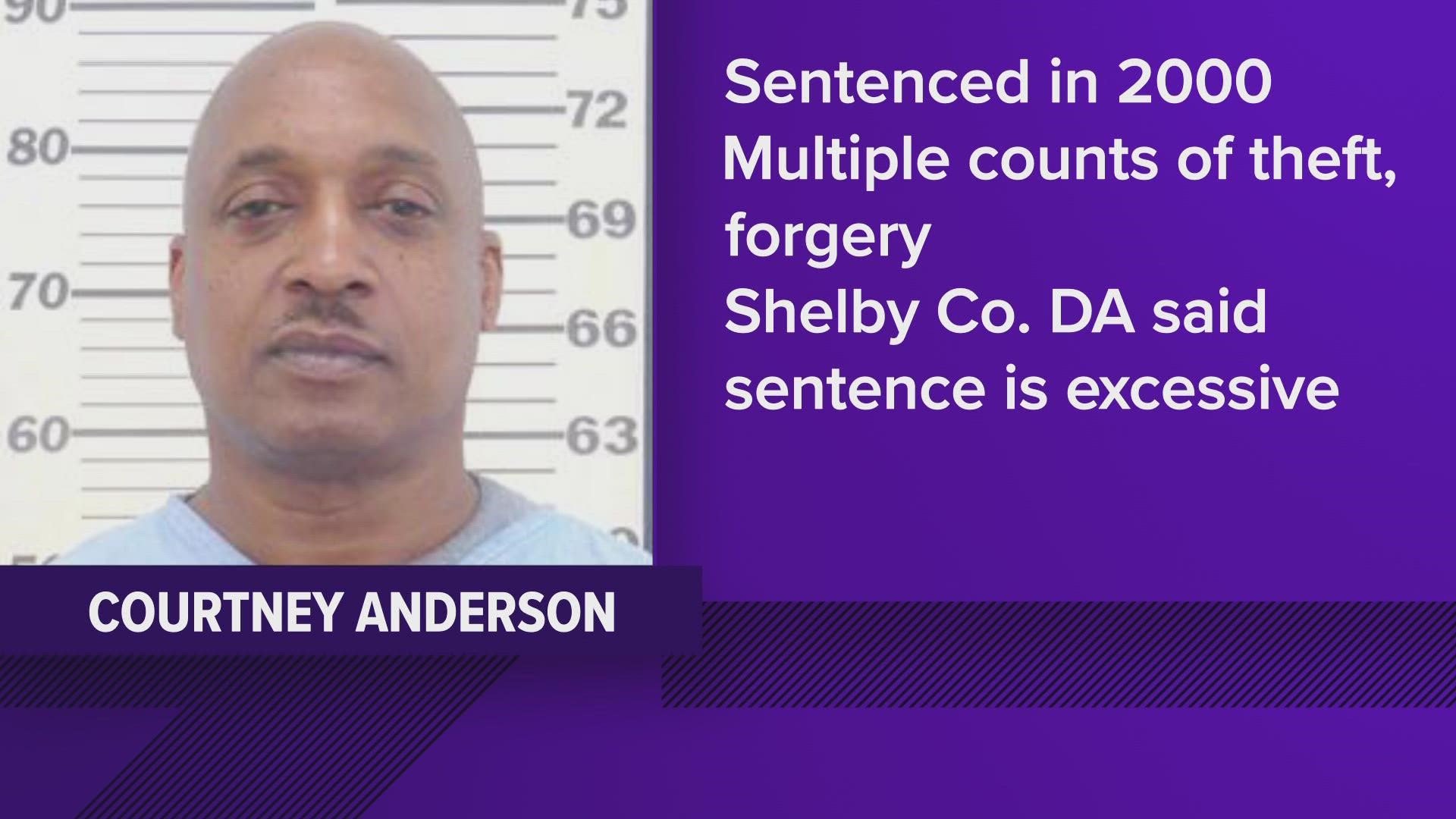MEMPHIS, Tenn. — After serving 25 years of a 162-year sentence, a Memphis man will now be released, the Shelby County District Attorney's Office announced Wednesday, after they reviewed and reopened Courtney Anderson's case.
Anderson, now 54, was arrested in 1997 and later convicted of multiple counts of theft and forgery.
In 2000, Anderson was sentenced to 162 years, 11 months, and 29 days. As a repeat offender, the judge gave the maximum amount of time on each conviction and required the sentences to be served consecutive to each other.
He attempted to appeal his convictions based on excessive sentencing, but the appellate court denied his appeals for procedural reasons, such as not attaching the correct transcripts, the D.A.'s Office said.
In April 2022, the defendant filed a pro se motion in Criminal court to “correct an illegal sentence.” Judge Paula Skahan reviewed the motion and brought the situation to the attention of the SCDAG’s office. Judge Skahan believed the sentence was technically a “legal” sentence, but was excessive.
She then requested the SCDAG’s office to investigate what, if anything, could be done. The SCDAG’s office, along with defense counsel, researched and found a legal ground for reopening the case.
Tuesday, Judge Skahan reduced Anderson’s sentence to 15 years, an effective time-served sentence.
“This was clearly an excessive sentence, the kind of overreaction that sows distrust in our system and doesn’t make us safer, “said Shelby County District Attorney Steve Mulroy. “I’m pleased to have helped in correcting this injustice. It’s an illustration of the good that reform prosecutors can do.”
The Eighth Amendment of the U.S. Constitution protects citizens against "cruel and unusual punishment," which the Tennessee Constitution also protects. However, many courts are conflicted when it comes to an objective definition of "excessive" sentencing, and this is often left up to a judge on a case-by-case basis.
Anderson was brought to tears when he received the reduced sentence, the D.A.'s Office said. He explained to the judge that he committed the crimes 25 years ago because of a cocaine addiction but has been clean for decades.
Anderson plans to reside in Virginia with his sister and said he looks forward to enjoying the holidays with family.

